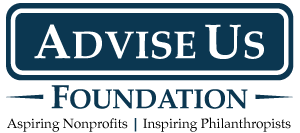
by Andrew Hibel | Aug 27, 2015 | Donor Intent, Donor-Advised Funds, Featured |
Don’t have time now? Do it later. Something came up and you want to give now? Go ahead. Do you have a foundation or a charitable trust and want additional flexibility? You can have it. Donor-advised funds offer donors like you great options! Giving to Your Donor-Advised Fund and Getting More for Charity You can make a gift to your donor-advised fund when it works for you. Make gifts of appreciated assets, employee bonuses, or proceeds from business sales when it’s most convenient and when you want to take a charitable deduction that year. Donor-advised funds help maximize your donations to charity through favorable tax treatment. You can deduct up to 50% of your adjusted gross income (AGI) for cash gifts and up to 30% of AGI for gifts of appreciated securities held at least a year. That means you can have more money to give to the charities you care most about. Making Grant Advisements to Charity Then you can advise grants. Your options? Give to any of more than one million IRS qualified 501(c)3 charities whenever you want. When can you give to charities? Now and in future years. How can you give? You can give now or schedule your charitable donations. Pre-scheduling one-time or recurring donations with a donor-advised fund is easy, popular and a huge opportunity to save your time! Using Donor-Advised Funds Along with Private Foundations and Charitable Trusts Many people have a donor-advised fund as a compliment to their existing foundation or charitable trust. Donor-advised funds also work well with checkbook giving, estate planning and IRA disbursements. Donor-advised funds can offer greater flexibility...

by Rosalyn Lambert | Jul 28, 2015 | Donor-Advised Funds, Featured |
Recurring gifts are nothing new. Numerous nonprofit organizations have shown big results with recurring gift donors. One study of online contributions found recurring gift donors gave 42 percent more annually than one-time contributors. But there is a problem – and an opportunity. One of the biggest areas of donation growth is donor-advised funds. But donor-advised fund advisors – the people you will need to solicit for a donation – cannot make a legally binding pledge using their fund. The advisors can only make “grant advisements.” This is an important legal restriction. But here’s a secret. Most donor-advised fund administrators fulfill almost all advisor grant advisements. That is, charities get the grant. Likely less than one percent of advisements get rejected. The few grant advisements going unfilled are almost always because: The donor requests a grant going to a nonprofit that isn’t a 501(c)3 charity; The donor is receiving something of value for the donation; or, in rare cases, The administrator has restrictions on what 501(c)3 charities can be supported (something donors would be made aware of when they create the fund). If you’re a 501(c)3 charity in good standing with the IRS and do not give anything of value in return for the donation, you should almost always get the grant. Where is the opportunity? Most donor-advised funds offer grant advisement pre-scheduling of recurring donations. This is a growing area with increasing numbers of scheduled contributions. It’s a big opportunity for you! Successfully Solicit Donor-Advised Fund Recurring Grants As you design your donor-advised fund recurring grant campaign there are three considerations (among standard ones) to keep top of mind....

by Hiram Wurf | Jul 10, 2015 | Donor Intent, Donor-Advised Funds, Featured |
“This whole idea of philanthropy is such a new thing for us. It’s a beautiful situation.” David Marck and his sisters, Roberta and Sarah, learned about their parents’ philanthropic gift “the day of their mother’s funeral.” “We couldn’t believe how much they had contributed,” David said. His parents, local businesspeople and active volunteers in La Crosse, WI, inspired the community focus of the donor-advised fund. The fund, advised by their children, supports free live music events in La Crosse. It also continues their family connection and community legacy. Donors often use donor-advised funds with specific charitable goals and themes in mind. Sometimes the name of the fund describes the cause. Other times donor-advised funds do not describe cause(s) they support in their name, but still have a specific charitable focus. 5 Ways Donor-Advised Fund Flexibility Offers Unique Advantages to Focused Philanthropy Donor-advised funds offer flexibility for donors with specific charitable goals or thematic interests. Here are five ways you can benefit from donor-advised fund flexibility with a philanthropic focus. 1. Flexible Naming. You have almost unlimited naming options for your donor-advised fund. 2. Flexible Charitable Beneficiaries. Donor-advised funds offer donors the right to advise grants to 501(c)3 nonprofit organizations. That means over 1 million well-known and lesser known charity options. These charities benefit a tremendous number of causes with diverse offerings that likely include those you seek to support. 3. Flexible Grant Advisement Decision-Making. Legally advisor(s) listed on a donor-advised fund can make grant advisements. But donors may name as many or as few advisors as they like. Advisors may also, informally, come up with any charitable grant advisement...

by Hiram Wurf | Jun 26, 2015 | Donor Intent, Donor-Advised Funds, Featured |
More donors are taking advantage of scheduling donor-advised fund contributions to charity. Recent data from Fidelity Charitable, the largest donor-advised fund administrator, shows an increase of six percent over the six years from 2008 – 2014. What are the donor benefits to scheduling donor-advised fund gifts to charity? Here are three: 1. Make the Gift Schedule When It’s Right for You. If planning gifts during the Thanksgiving/Winter Holiday season is too hectic, then donor-advised fund scheduling lets you plan ahead when you have the time. 2. Give Charitable Gifts When It’s Right for You. Scheduling with a donor-advised fund offers you the opportunity to plan your gifts better – include all the charities you support and give them gifts at the time that is right for you. 3. Budget for Your Charitable Giving Better. You can plan your budget easier when you schedule your gifts ahead of time. You also can distribute “windfall” funds – from sale of a business, a salary bonus or a high valuation of appreciated securities – more thoughtfully and easily with scheduled giving from your donor-advised fund. More Donors See Advantages of Donor-Advised Fund Scheduled Contributions Donors recognize the convenience of planning ahead when they have the time. It’s a great charitable giving advantage! Scheduling donations works best when the gifts are “predictable” in amount and timing. Donor-advised fund gift scheduling can make your charitable giving process much easier and better. ____________ Hiram Wurf is Charitable Catalyst, Managing Director of The Advise Us Fund®. The Advise Us Fund is an independent 501(c)3 nonprofit organization that offers a donor-centric approach to charitable giving. Hiram formerly...

by Hiram Wurf | Jun 9, 2015 | Events, Featured |
Starting a Bequest Program is Easy We Can Show You How to Do It! Executive Directors, Board Members and Development Officers of Small- to Medium-Sized Nonprofits Please Join Andrew W. Hibel of The Advise Us Fund and Kristin C. Vogen of the Oak Park-River Forest Community Foundation For More Details on this No-Cost June 25th Event Please Click this Invitation (pdf) ____________ The information in this blog post is general and educational. It is not intended nor should it be construed as legal, tax, investing or financial advice. Individuals should consult with their own advisor about charitable giving arrangements The Advise Us Fund® may...






